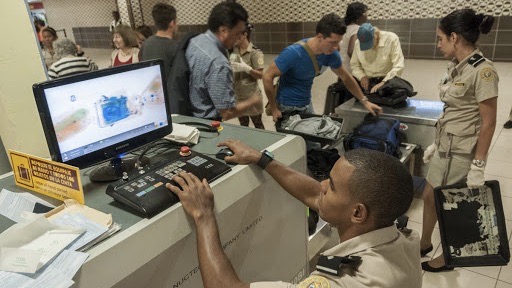April 1 will mark the 40th anniversary of the events at the Peruvian Embassy and the Mariel Boatlift. The rhetoric of Cuban rulers has constantly accused the United States of having politicized the immigration issue in the context of relations between the two countries.
To substantiate this Castro's propaganda mentions the protection that Washington gave some officials of former governor Fulgencio Batista, the Cuban Adjustment Law, the dry feet-wet feet policy, as well as programs to provide asylum to Cuban doctors who were abroad and wished to move to the United States.
Here it is also worth mentioning Cuban authorities' insistence on reducing the concept of the emigrant, motivated almost exclusively by economic problems, to those citizens from the island who decide to settle abroad. They reserve the label of exiles to those people who left the island during the first years of the revolution, most of whom settled in the United States, and are considered the "historical exiles."
But there is one detail that just does not fit into the portrait painted by Castro's rulers: the evidence that emigrants leave their countries of origin in a civilized way, without incident, and their relatives are almost always the only ones who know about their departure, but none of this was the case with those Cubans who reached Florida from the Port of Mariel in the mid 80s.
It all started on April 1 of that year, when a group of people entered the Peruvian embassy in Havana and requested asylum. Cuban authorities protested the welcome that Peruvian diplomats gave the asylum seekers, and soon saw the need to cordon off the Embassy to contain the unstoppable flow of people who wanted in; in the blink of an eye, about 10,000 people crowded into the courtyard of the diplomatic headquarters.
Cuba's rulers, rattled by so many citizens deciding to forego life in their "socialist paradise", tried to exploit the conflict with Washington to settle the mess. Thus, they set up the Port of Mariel so that anyone who wished to leave the country and flee to the north could do so. But, along the way, they emptied Cuba's prisons and psychiatric hospitals to make it appear that it was criminals and the mentally ill who wanted to leave Cuba.
Then they bid farewell to those headed for Mariel with the famous "repudiation rallies" at their homes, demonstrations that included insults, mistreatment, sieges of their homes, and even beatings. Under these conditions, does anyone have the audacity to describe those who left from that Cuban port as émigrés? And who can deny the political connotation that Castroism gave the affair?
At the bombastic Memorial de la Denuncia (Denunciation Museum), open in the Havana neighborhood of Miramar, you will search in vain for the slightest reference to these actions against those who left the island. Nor will you find any mentions of other atrocities committed by Castroism, like the sinking of the 13 de Marzo tugboat in the summer of 1994. Cuba's rulers want the country's young people to know about "the aggressions of imperialism against the Cuban revolution," and nothing more.
It would be an act of dignity if the current coronavirus epidemic made possible the holding of the now suspended or postponed Conference on the Nation and Emigration, and the members of the diaspora, some of them who may have left from El Mariel, demanded from the Cuban Government an official apology for those vicious acts 40 years ago.
